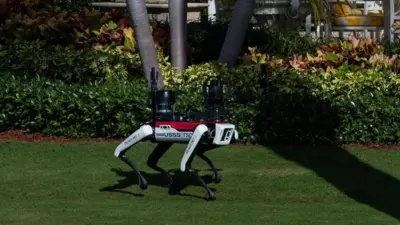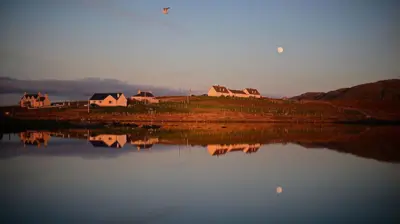We've updated our Privacy and Cookies Policy
We've made some important changes to our Privacy and Cookies Policy and we want you to know what this means for you and your data.
Profile: Ukraine's President Petro Poroshenko
Ukrainian oligarch Petro Poroshenko, who won outright victory in the May 2014 presidential election, has long supported the country's pro-European movement despite being unaffiliated to any political party.
The "chocolate king", as the owner of Ukraine's largest confectionery manufacturer Roshen is known, was a key backer of the 2004 Orange Revolution and once served as foreign minister under Yulia Tymoshenko, the Orange Revolution star whom he roundly defeated at the last election.
However, the 48-year-old also served briefly as trade minister under President Viktor Yanukovych, whose downfall amid street protests in February paved the way for him to take the presidency.
Having seen off his main political rivals, he comes to power in a country wracked by civil war in the east and uncertainty over relations with Russia, which saw its political influence in Kiev crumble with the overthrow of Mr Yanukovych.
But he appears to have solid backing from Washington and Brussels, eager to see stability return to Ukraine. US President Barack Obama has praised the tycoon as a "wise selection" with an impressive record in business expertise who can handle Ukraine's formidable economic and political challenges.
Corruption pledge
Born on 26 September 1965 in the town of Bolhrad near Odessa, he was raised in the central region of Vinnytsya and studied economics in Kiev.
After building up his confectionary empire after the collapse of the Soviet Union in the early 1990s, he now also has interests in construction and the media, owning influential Ukrainian broadcaster Channel 5 TV.
Forbes recently estimated his to be $1.3bn (┬Ż0.8bn; 1bn euros).
The father of four portrays himself as a pragmatic politician who sees Ukraine's future in Europe but hopes to mend relations with Russia, using the diplomatic skills he developed as foreign minister.
He advocates local governance reform and devolution of power to the regions, as well as economic reform and improving the investment climate.
If he or others let people down by not tackling endemic corruption, people power will hold them to account, .
Critics would say he himself is part of the old system and questions have been asked about his decision to retain control of Channel 5 while in office, as explains.
He has taken a hard line on the separatist insurgency in the east and ruled out negotiating with them.
"Talking to gangsters and killers is not our path," he said in his inaugural speech.
Russian challenge
This image of a tough leader of integrity was reinforced by his decision to visit Crimea at the height of the crisis this year and brave hostile crowds.
Ukrainian media interpreted the groundswell of support for Mr Poroshenko at the election as a reaction to the opposition's dithering and inability to find common ground during and after the anti-government protests that toppled Mr Yanukovych.
Mr Poroshenko also won the support of opposition leader and former boxer Vitaly Klitschko as well as fellow tycoon Dmitry Firtash, who has long been on cordial terms with Russia.
But building a working relationship with Moscow is possibly his greatest or at least most pressing challenge, as the pro-Russian rebellion intensifies, threatening, in his words, to create a new Somalia.
"I think that Mr Poroshenko has a unique opportunity," Russian President Vladimir Putin has said. "He still doesn't have blood on his hands. He can still... start a direct dialogue with the citizens of the south and the east of his own country."
Despite his tough talk about defeating "terrorists", Mr Poroshenko has steered away from calls to introduce martial law in the east. Instead he says he hopes to pacify the region with an offer of amnesty and a promise of early regional elections.
Top Stories
More to explore
Most read
Content is not available








